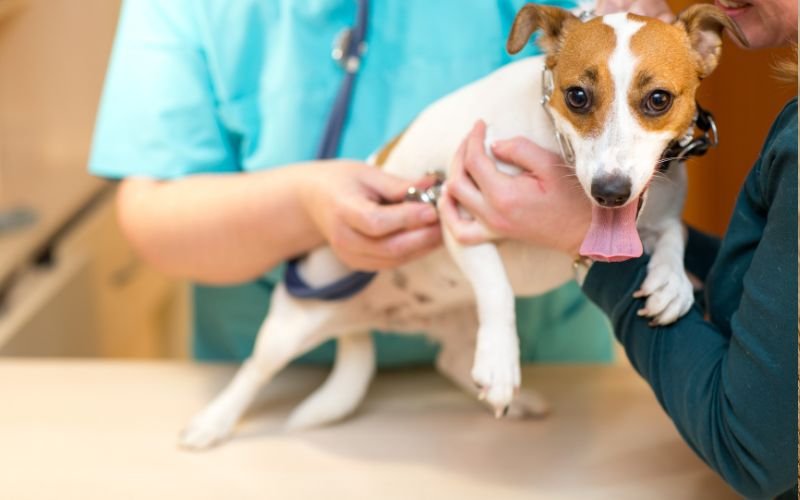Can Dogs Have Pistachios? A Complete Guide to Pistachio Safety for Your Pet
Dogs and human foods do not always mix well, and when it comes to nuts, pet owners need to be particularly careful. While pistachios are not technically toxic to dogs, there are several important considerations before sharing this popular snack with your dog.
Health Implications of Pistachios for Dogs

Pistachios contain beneficial nutrients like protein, fiber, and healthy fats that can support overall health. However, these nuts are high in fat content, which can lead to pancreatic issues in dogs. A single pistachio contains approximately 3-4 calories and 0.3 grams of fat, which may seem minimal but can quickly add up if consumed in larger quantities.
The high fat content in pistachios can trigger pancreatitis in dogs, a serious condition that causes inflammation of the pancreas. Signs of pancreatitis include vomiting, diarrhea, loss of appetite, and abdominal pain. Dogs with existing health conditions or those prone to weight gain should especially avoid these nuts.
Pistachios also contain phosphorus and other minerals that, while beneficial in small amounts, can disturb your dog's carefully balanced diet when consumed regularly. Commercial dog food already provides the necessary nutrients in appropriate proportions.
Potential Risks and Dangers
The shell of pistachios poses a significant choking hazard for dogs of all sizes. These hard shells can become lodged in your dog's throat or cause intestinal blockages if swallowed. Additionally, the sharp edges of pistachio shells can damage the digestive tract.
Pistachios are susceptible to mold growth, particularly a type called Aspergillus, which produces aflatoxins. These toxic compounds can cause severe liver damage in dogs. Even pistachios that appear fresh may contain trace amounts of these harmful substances.
The salt content in roasted and flavored pistachios presents another concern. Most commercially available pistachios contain added salt, which can lead to excessive thirst, urination, and, in severe cases, sodium ion poisoning in dogs.
Safe Alternatives to Pistachios
Instead of pistachios, consider these dog-friendly snacks:
-
Fresh carrots and apple slices (without seeds)
-
Plain, cooked sweet potato
-
Small pieces of lean, cooked chicken
-
Commercial dog treats designed for training
-
Fresh or frozen green beans
-
Plain, low-fat yogurt
-
Blueberries and strawberries
How Do Pistachios Affect a Dog's Digestive System?

The canine digestive system is not designed to process nuts efficiently. When dogs consume pistachios, their bodies struggle to break down the high concentrations of fats and oils. This difficulty in digestion can lead to immediate gastrointestinal upset, including stomach pain and diarrhea.
Additionally, dogs lack certain enzymes that humans have for processing complex nut proteins. This deficiency can result in longer digestion times and potential nutrient absorption issues. Some dogs may experience bloating or gas as their system works harder to process these unfamiliar foods.
The rich nature of pistachios can also overwhelm a dog's digestive tract, potentially leading to bacterial imbalances in their gut microbiome. This disruption can affect their overall digestive health for several days after consumption.
What Makes Salted Pistachios Particularly Dangerous?
Salted pistachios present a unique set of risks for dogs. The sodium content in just a handful of salted pistachios can exceed a dog's daily recommended salt intake. This excess sodium can lead to severe dehydration and electrolyte imbalances in dogs, particularly in smaller breeds.
Regular consumption of salted nuts can contribute to high blood pressure in dogs, just as it does in humans. This is especially concerning for older dogs or those with existing cardiovascular conditions. The salt content can also strain their kidneys as they work to process and filter the excess sodium.
Even more concerning is the risk of sodium toxicity, which can occur if a dog consumes too many salted pistachios at once. This condition can lead to tremors and seizures and, in severe cases, could be life-threatening.
When Should You Seek Emergency Veterinary Care?

Immediate veterinary attention is necessary if your dog shows any of these serious symptoms after consuming pistachios: persistent vomiting, severe lethargy, difficulty breathing, or signs of abdominal pain. These could indicate a severe reaction or potential blockage.
Time is crucial when dealing with potential intestinal blockages from pistachio shells. If your dog has consumed multiple shells, do not wait for symptoms to appear before seeking medical attention. Early intervention can prevent more serious complications.
Watch for signs of allergic reactions, which although rare, can occur. Symptoms like facial swelling, excessive scratching, or difficulty breathing require immediate emergency care.
Are There Any Benefits to Feeding Dogs Pistachios?

Despite containing some beneficial nutrients like protein, vitamin B6, and potassium, the risks of feeding pistachios to dogs far outweigh any potential benefits. These nutrients can be obtained more safely through their regular dog food and appropriate treats.
Commercial dog foods are specifically formulated to provide all the necessary nutrients in the right proportions. Adding pistachios to their diet could actually disrupt this careful balance and lead to nutritional imbalances over time.
If you are looking to supplement your dog's diet with additional nutrients, there are many safer alternatives available, including specially formulated dog supplements recommended by veterinarians.
What to Do If Your Dog Eats Pistachios?
Monitor your dog closely if they consume pistachios. Watch for signs of digestive upset, including:
Immediate action is necessary if your dog consumes a large quantity of pistachios or shows any signs of distress. Contact your veterinarian promptly, especially if shells were consumed or if your dog exhibits unusual behavior.
Frequently Asked Questions
Can one pistachio hurt my dog?
A single pistachio is unlikely to cause serious harm, but it is best to avoid feeding them to dogs entirely due to potential risks.
What should I do if my dog ate pistachio shells?
Contact your veterinarian immediately, as shells can cause dangerous blockages.
Are any nuts safe for dogs?
Plain, unsalted peanuts and cashews are generally safe in very small amounts, but most nuts should be avoided.
How long after eating pistachios might a dog show symptoms?
Symptoms of digestive issues can appear within 12-24 hours of consumption.
Conclusion
While pistachios are not immediately toxic to dogs, the risks outweigh any potential benefits. From choking hazards to digestive issues and potential mold exposure, it is best to keep these nuts away from your canine companion. Instead, stick to veterinarian-approved treats and snacks specifically designed for dogs. Your pet's health and safety should always come first when considering human foods as treats.









Comments